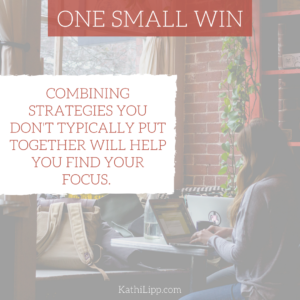
by Guest Blogger | Oct 18, 2017 | Clutter Free, Guest Blog |

If you’re a lover of the food court, impressed by ridiculously clean, smooth floors, and slightly addicted to samples… welcome to the Costco club.
It’s pretty much the only place where your shopping cart can contain a $45,000 diamond ring resting on top of a five-gallon jug of cooking oil.
It’s also the only place I’d like to be stuck/trapped/held captive in the event of an alien parking lot invasion. Think about it… grab a mattress, sheets, down comforter, scooch yourself to the middle aisles, bust open a pillow two-pack, choose some cozy jammies, slippers and a good book, plug in a heater and wait for the sample servers to come around with hors-d’oeuvres at five. Rotisserie chicken, bagged salad and artisan bread for dinner? I’ll grab the paper plates, napkins, and plastic silverware. Brownies or pumpkin pie for dessert? Yes.
Before we accidentally start planning this event, let’s get to the Costco secrets.
Disclaimer:
- I am not an employee of Costco.
- I am not a secret shopper with the ability to write Costco up for not letting me drive the floor squeegee/rider/thingy.
- I do not own Costco stock.
- I have only put one question in the suggestion box. (Why is cornbread seasonal?)
- I do not follow Costco on Twitter.
- I have never spent the night in Costco, though I’m not entirely opposed to the idea.
- I am not member FDIC, mostly because I do not know what that means.
The Secrets
1. Open, Open, Open
Most Costcos in the States open at 10:00 a.m., but if you live in Mexico… 9:00 a.m., baby! Once I arrived early to our Ensenada store thinking I had 15 minutes to wait. When what to my wondering eyes did appear, but a dude with a key and a smile just for me. In I went at 8:45, feeling like I had been given an extra chunk of time in my day. This happens in Temecula, CA, too!
2. Turnover Nights
Ever wonder why the display of rad, crazy-soft blankets moved from the front to the middle and then to the right? Marketing. Costco moves things around to make you take a different route and possibly see new products.
New products are stocked on Saturday during the night shift, so if you want to see the latest and greatest, shop Sunday. But first, go to church and pray for patience because there tends to be a bit of gridlock around the TVs and Nearly Naked Popcorn.
3. Some Prices Will Never Change
Behold, the all-American hotdog, and soda combo, alive and well in Baja, too. Same price since the day Costco opened… just a mere $1.50. Friendly reminder: just because something is super cheap and makes your mouth dance does not mean it’s healthy for your insides.
Did I just ruin it?
Sorry—I ruined it.
4. Costco Membership = Discounts on Cars, Vacations, and Coffins
Not much to explain here. If you plan on buying a car, going on a vacation or kicking the can soon, shop costco.com first.
5. For Real Bargains, Shop the Perimeter and Middle
According to Lifehacker, the middle area of the store is referred to as “action alley” because of the high traffic. “Makers and distributors often pay for the privilege of being there, and the prices are aggressive,” the site says. The flashy displays at the end of aisles, where lucrative samples are given, tend to be the worst bargains in Costco.
I love lucrative samples.
6. Price Adjustments
Besides having an amazing return policy, Costco also offers a 30-day price adjustment guarantee. If an item gets marked down within 30 days of when you bought it, take your receipt to customer service and get the difference reimbursed. Badda-bing, badda-boom.
7. Cheapest Prescription Drugs
A recent Consumer Reports survey found that, when it comes to generic prescription drugs, Costco’s pharmacy is the most affordable on the market.
Extra Bonus: Did you know Costco membership is not required for Costco Pharmacy purchases online or in the warehouses? Annnd… they offer home delivery. Ding-dong!
8. Ninety-Seven-Cent Tags are Your Friends
Most regular priced items end in .99¢, and sometimes .49¢, .79¢, and .89¢. But the real bargains end in .97¢. They’re the items that have been marked down to the lowest sales you’ll find. They’re throughout the whole store, even on food items. Score, score, score some more.
9. Asterisks Mean “Bye Bye”
If you see this symbol (*) in the top right corner of the price tag then you know the item will not be restocked. What you see is all they have, and it won’t be returning, so if it’s something you need, stock up. Exception: popular seasonal merchandise might be returning, but not for a year. Don’t panic though: Christmas decor now arrives in August. #sweatysanta
10. Think Outside the (Costco) Box
The clear, plastic container that holds a 12-pack or 14-pack of apples perfectly fits Christmas ornaments. Fa-la-la-la-la!
What’s your favorite Costco bargain?
Besides maybe pita and hummus, what do you think Jesus would buy at Costco?

Originally from the redwood forest of Mount Hermon, CA, Carrie lived in Baja, Mexico for the past 12 years. She and her husband, and two very white, bilingual boys just moved back to the States and are gradually adjusting to traffic and taco prices.
In the middle of a non-profit ministry and surrounded by dust and mud, she wrote a children’s book about bullying. She is now collaborating on a nonfiction book about loss, guilt and grace.
Carrie is dedicated to Jesus and avocados, and blogs regularly at carrietalbottink.com. She can also be found on Twitter @carrie_talbott and on Facebook at Carrie Talbott Ink.

by Guest Blogger | Aug 3, 2017 | Love Your Husband, Marriage |

Socks scattered across the bedroom floor. Again.
Love is patient.
Paper piles covering every flat surface, even though I created a file system for them.
Love is not easily angered.
How many times do I have to remind him there is a container for the chips?
Love keeps no record of wrongs.
These are the thoughts and frustrations that run through my mind every time my husband’s messy tendencies conflict with my organized ways. You would think that after 25 years of marriage I’d be used to it.
I’m not.
When I married Clint I knew what I was getting into. I didn’t marry him for his organizational skills, but rather for his sense of humor, good looks, and kind ways. Plus, I was certain being married to me would cure him of his disorganization.
I was wrong.
Our polar opposite personalities and different ways of keeping things in order clashed from the get-go. We struggled and fought. In the end, I had to learn how to balance my orderly style with his not-so-organized ways.
Love Paves the Way
It wasn’t easy, but hope and LOVE made all the difference.
LOVE paves the way
Since our marriage was a relationship grounded in God, it seemed like the best place for me to search for answers in dealing with my disorganized spouse would be God’s Word. I was certain that I would find the evidence I needed to change Clint to my tidy way of living.
Once again, I was wrong.
In 1 Corinthians 13, Paul writes, “ Love is patient, love is kind … it keeps no record of wrong.” I wonder if Paul knew how desperately some “Odd Couples” would need to hear those words in order to live as one.
Rather than give me the weapons I was looking for, God’s Word showed me how to express LOVE to Clint in ways that would honor him, our marriage, and our home.
Express Love to Your Spouse
Learn your spouse’s organizing style. Organizing isn’t one-size-fits all. In fact, each of us has our own way of keeping order. As much as I wanted Clint to be organized like me, he had his own style.
Once I recognized his style – no lidded containers, simple in function, and everything in view – it made it easier for me to create order for both of us. By honoring who he was, and how God created him, I was able to find a balance both of us could work with.
A marriage is made up of two unique individuals. I needed to stop trying to make him just like me and appreciate the man he was.
Offer to compromise. In a perfect world, everyone would be organized. But we don’t live in a perfect world, and often times those we love are not as organized as we’d like them to be.
While we could insist they do things our way, God reminded me that love is not self-seeking (1 Cor 13:5). That’s where compromise comes in.
Compromises
Rather than demand that every inch of the house be in perfect order, here are a few compromises I suggested:
• Offering one or two “messy zones” that he is free to keep as he pleases.
• Determining together which spaces in the house should be clutter-free and which everyone has to make an effort to keep orderly.
• Setting terms for dealing with unwanted stuff – agreeing to declutter twice a year with a goal of getting rid of at least 50 items.
Compromise is never easy, but it’s a necessary component of marriage and the organizing journey.
Verbalize your feelings, but don’t nag. While it can be frustrating to see the piles and chaos that disorganized spouses can leave in their wake, constantly pointing out those tendencies will not bring order to your home.
Statements such as, “Why can’t you put the chips back where they belong?” or “You always leave your socks on the floor” don’t exactly convey loving sentiments. Rather, statements like these that can put your spouse on the defensive and make you sound like a quarrelsome wife (Prov. 19:13, 21:9, 25:24).
Instead of bringing up his organizational shortcomings, why not try statements such as:
• “Honey, did you know that there is a basket specifically for the chips in the pantry?” or
• “It really bothers me when you leave your socks on the floor all the time. Could you pick them up more often and place them in the hamper?”
Words Have Power
Our words have the power of life and death and a gentle answer can turn away wrath (Prov. 15:1). They might just lead to order too.
Exemplify. It’s unlikely that your nagging or anger will be what brings your spouse to the light of organized living. I’ve learned from personal experience that setting the example first has more influence and impact than words or fights could ever have.
Truly, actions speak louder than words (1 Peter 3:1). Over time my consistent organized ways and habits eventually began to rub off on my husband. In the past few years I’ve seen Clint become more orderly – he makes to-do lists on a regular basis, he purges his clothes before we go shopping, and I’ve even caught him using my label maker!
I can’t say that he’s organized with everything, but he’s definitely not the same man I married all those years ago. Sometimes the best thing a wife can do is be the example for her spouse, even in the little things.
[Don’t forget to show LOVE to your spouse! Download the FREE printable – 4 Ways to Express LOVE to Your Not-So-Organized Spouse.]
Lesson Learned
Early in our marriage, I questioned whether two people on different ends of the organizing spectrum could make it work under one roof. I was certain that he was the one who needed to change. Eventually, I realized that the only person I can change is myself.
While our home isn’t perfectly organized, the truth of God’s Word, the hope that things could change, and a lot of LOVE have allowed us to have a home that’s as clutter-free as can be.
How could LOVE make a difference with your not-so-organized spouse?
 Liana George is an organizer, writer, and speaker. Her mission is to inspire others in transforming their chaos into an organized lifestyle. Liana is married to Clint and together they have two adult daughters. When Liana isn’t organizing something you can find her curled up with a good book, watching/playing tennis, or planning her next dive adventure. You can visit her website at bygeorgeorganizing.com.
Liana George is an organizer, writer, and speaker. Her mission is to inspire others in transforming their chaos into an organized lifestyle. Liana is married to Clint and together they have two adult daughters. When Liana isn’t organizing something you can find her curled up with a good book, watching/playing tennis, or planning her next dive adventure. You can visit her website at bygeorgeorganizing.com.


by Guest Blogger | Jul 20, 2017 | Clutter Free, Guest Blog |

I started wading through the clutter in January. One week later I was disheartened. There was still a lot to do. I shared my dismay with my brave friend who had come over and worked alongside me for a bit, she said, “It will take a year.” She reminded me this was a process and that it would take more than a weekend to declutter. And here I am today, still working on organizing, decluttering, de-junking my house. I have made some progress and have discovered some surprising clutter.
The piles of toy parts, the box of notes from high school, and the bags of stained baby clothes, I expected. However, I was surprised to discover hidden pockets of clutter of a different variety. These were things I thought I would never misplace or lose track of. I unearthed encouraging words left unsaid, found compliments piled in the corners like stacks of magazines, and discovered a hoard of fun under the couch.
Surprising clutter
I found a box full of family time that still had the packing tape on it from our last move. Nothing really prepared me for the waves of regret that quickly eroded my pride in the progress I had made. The cost of clutter had not really hit me until that moment; clutter steals and hoards what we are capable of giving to others.
I had not realized that my disheveled closet was hoarding confidence or that the chaotic art room had my children’s creative tendencies squirreled away in half empty crayon boxes and dried up paint bottles. I started to think that maybe we just weren’t as creative, fun or as kind as we used to be, but it was just that the clutter had taken over and obscured these attributes from our hearts and minds. My creative, kind and fun-loving family was there all along.
It was just that we could only see the mess.
It didn’t take me long to realize I could not hold on to the the regret that came along with this discovery. I certainly could not afford to stockpile regret, so out it went and in came a new way of living and loving.
How to clear out the surprising clutter
 As we clear the clutter, we discover that our hearts expand to give more generously to those we love most, and isn’t that what we all want? I don’t need the old train table the kids played with years ago or the 20 reusable grocery bags that have taken over my side entryway, I do need every bit of my capacity to encourage my children and to love my husband well.
As we clear the clutter, we discover that our hearts expand to give more generously to those we love most, and isn’t that what we all want? I don’t need the old train table the kids played with years ago or the 20 reusable grocery bags that have taken over my side entryway, I do need every bit of my capacity to encourage my children and to love my husband well.
My words of affirmation and kindness must be said, otherwise they are just as useless as the boxes of VHS tapes in the basement. The fun hoard, along with the dust bunnies and dog toys, needs to come out from under the couch, so that our home can be a place of joy.
Clearing the clutter allows our hearts to be tuned into what is most important — the people we do life with. As I continue to declutter my home I am now more excited about what I will gain. An expanded heart ready to jump into joy, fun and love versus what I will lose.
 You can read more from Bethany Howard at bethanyhoward.com. She writes about finding fuel for joy and growth in the details of the daily. Her greatest leadership exercise has been her roles as wife and mom to three. She is a graduate of Leverage: The Speaker Conference.
You can read more from Bethany Howard at bethanyhoward.com. She writes about finding fuel for joy and growth in the details of the daily. Her greatest leadership exercise has been her roles as wife and mom to three. She is a graduate of Leverage: The Speaker Conference.

by Guest Blogger | Jul 6, 2017 | Clutter Free, Guest Blog |

Have you ever had a time when you secretly crowned yourself the Clutter-Free Queen of your house, and then you remembered the storage space under your basement stairs? You know, the storage space that was supposed to be only for Christmas decorations, but now houses every holiday decoration your child ever made from preschool through high school?
I, too, had one of those moments when I recently discovered a forgotten storage space in my life where I kept outdated and unwanted items. My storage space is smaller than the closet under the stairs, but it has enormous storage capacity. You guessed right, it’s in my mind!
Don’t Panic!
If you haven’t de-cluttered your brain yet, you don’t need to throw away your prized tiara. The mind can be conquered just like every other closet and drawer we face. When we successfully delete all the unnecessary information in our minds, we create room for new and peaceful thoughts during the day, and for restful sleep at night.
When we are at rest, particularly at night, our entire being, the mind, body, soul and spirit reaps the benefits. As I discovered while researching my book, Winning the Battle for the Night, unresolved issues in our mind often disturb our sleep at night.
As a Christian, I know from scripture that God gives us sleep. And the night should be a time for rejuvenation, rest and even revelation from God. Our Father did not intend for human beings to lie awake, tossing and turning on their beds all night.
Is a clutter-free mind possible?
Actually, have you ever heard the phrase, “I slept like a baby”? Well, God’s intention for us is to sleep like a healthy baby, in perfect peace. I believe this is the picture God had in mind when He designed our body for sleep. And yet, our mind robs us of the rest we were designed to receive at night.
The astonishing fact is that this small area of our body, weighing just three pounds, holds more than all our books, files, pictures and memorabilia combined. You may have a garage full of filing cabinets you purged. Maybe thousands of files shredded, but the brain can hold so much more information than anything you’ve ever shredded, trashed, or given over for consignment.
The brain holds about 25 million books worth of information. In computer storage terms that would be as much as 1000 terabytes of information. In comparison, the National Archives of Britain holds 900 years of history, which are contained in 70 terabytes.
Don’t worry!
Not everything in our brain has to be deleted before you can have a restful night of sleep. Deleting unnecessary files in your mind is not like the reformatting process for a computer in which all the files are deleted. A lobotomy isn’t necessary. We do have valuable information stored in our mind. Just as on a computer hard drive, there are many good files.
However, as I began an inventory in the filing cabinets stored in my brain, I was both shocked and embarrassed by what I found. I kind of felt the same way when I opened my closet in front of my neighbor and my belongings started tumbling out the door.
With the desire to sleep like a baby as my motivator, I decided it was time to look at my inventory and de-clutter my brain. Some of the contents of my filing cabinets were files that were decades old. I hadn’t looked at them for years, but they were still there, taking up space. Talk about cobwebs!
So here’s my list of seven storage cabinets that I’ve readied for removal.
1. Failures
2. Betrayals
3. Regrets
4. Disappointments
5. Conflicts
6. Accusations
7. Shame
Now What?
This storage space is not as easy to deal with as the closet under the stairs. I can’t put the contents in the dumpster or take them to Goodwill. So I devised a two-step method. It is called Give and Receive. Here’s how it works:
GIVE: Rather than calling a shredding service to shred all the files out of my seven cabinets, I took each file and gave it to God. Some files were harder to part with than others, but my desire for better sleep provided the power to pry the file loose from my grip. The surprising thing about giving the filing cabinets to Him was that He gave me something good to replace each file I gave Him. The shredding company never gave me anything for my files except a bill!
In order to benefit from God’s generosity, I need to anticipate and be willing to participate in an exchange with Him. This is the second step—receive.
RECEIVE: God is the ultimate Giver. He is resourceful, imaginative, and knows exactly what I need to receive. Here is a list of the seven exchanges I received from Him.
1. Courage to try again in place of failures.
2. Comfort for the pain of betrayals.
3. Hope for the future in place of regrets.
4. Joy in the place of disappointments.
5. Love to cover the conflicts.
6. Blessing to replace the accusations.
7. Forgiveness for all my shame.

Your brain may not have as many cabinets tucked as mine did. Regardless of how many you have, think about focusing on one cabinet a week. Give God the contents of your cabinets. Once you’ve taken this first step, the next step is easy, just receive what God gives you in exchange for what you released to Him.
You will be amazed at what He has already planned to give you! He has been waiting for this opportunity to fill your mind with good things. As you enjoy the fruit of your hard work—a clutter free mind, you’ll find sleeping like a baby comes more easily.

 Faith Blatchford, Author of Winning the Battle For the Night: God’s Plan for Sleep, Dreams and Revelation is also a conference speaker and composer. She has a B.A. in Religion from Vassar College. She is a pastoral counselor, as well as a creativity coach and sleep/dream consultant. Her goal whether in writing, speaking or personal ministry is to help people experience freedom in every area of life through deep connection with God, the giver of hope.
Faith Blatchford, Author of Winning the Battle For the Night: God’s Plan for Sleep, Dreams and Revelation is also a conference speaker and composer. She has a B.A. in Religion from Vassar College. She is a pastoral counselor, as well as a creativity coach and sleep/dream consultant. Her goal whether in writing, speaking or personal ministry is to help people experience freedom in every area of life through deep connection with God, the giver of hope.

by Guest Blogger | Jun 28, 2017 | Guest Blog, Overwhelmed |

“I’m overwhelmed. I just need a break!” I said to my counselor. Minutes later, I left her second story office and hurried the length of the deserted hallway. I glanced at my phone while descending the stairs. My phone was dead, but I knew it was close to 4:00. I had just enough time to get to school and pick up my kids before their practices ended at 4:30. As I took the next step, I missed the stair and tumbled forward. When I came to a stop, I heard a loud “pop.” The pain was unbearable.
Tears came fast and furious and I cried out for help.
No one heard me.
I tried to push myself up to stand, but my left foot refused to bear any weight.
I cried for help again, thinking there must be someone nearby.
Again, no one heard me.
I tried my phone a second time in vain. My husband was in New York on business. Picking up the kids wouldn’t wait. I gritted my teeth and pushed myself up from the base of the stairs. I could stand on my right foot, but my left was completely useless. With great pain, I hopped to the car, frequently banging my left foot against the pavement. I managed to get myself into the car and drive across town to the school, sobbing the entire way.
The “break” I needed
I’d love to tell you my injuries were minimal and I healed quickly, but that’s not what happened. Instead, I got the “break” I needed in the form of broken bones and multiple sprains in my foot and ankle, six months of pain, restrictions, physical therapy, and a complete overhaul of my demanding pace of life.
Before my fall, I was at a breaking-point. Maybe you’ve been there too.
I had taken on too many responsibilities – running a nonprofit, serving as team mom, leading a Bible study, making play costumes, and so much more. I spent the previous year moving at record speed. I like to keep busy, but I was over-committed, under-rested, and probably not the most pleasant person to be around.
We don’t have to live that way.
Count the cost of yes
What I learned through my ordeal was that I’m capable of only so much. I’m learning to live within my limits. That means I only commit to a certain number of activities, projects and responsibilities. When my plate is full, I must eliminate an item before adding another. I guard my time and energy or they’ll be swallowed up by my desire to say “yes” to more than I can sanely accomplish.
If I hadn’t been rushed and feeling overwhelmed, I’m sure I wouldn’t have missed that step. I likely wouldn’t have even been in counselor’s office that day. The cost of over-commitment was high.
One of the things I contemplated during my recovery was that Jesus never rushed. He moved at an intentional pace. His time of ministry on earth was very brief, only three years. If anyone had a reason to pick his pace and do more than humanly possible, it was Jesus. But, he didn’t.
I’m learning to follow his example.
Luke 14:28 reminds us to count the cost, “For which of you, desiring to build a tower, does not first sit down and count the cost, whether he has enough to complete it?”
When we’re tempted to say “yes” and add one more thing to our busy schedules, pause and acknowledge that “yes” will cost us something. At the very least, it means we have to say “no” to other opportunities.
What will saying “yes” cost you? Will it cost your peace? Dilute your focus?
When we commit to pause and count the cost before taking on another thing, we are empowered to manage the opportunities that come our way. We focus on what we’re meant to do, the things most important to us. We walk in freedom, unhurried and confident.
What are you doing to follow Jesus’ example of walking out your life intentionally and unhurried? How have you learned to live within the limits of your time and energy?

 Elizabeth M. Thompson is a writer and speaker. Prayer is her super-power and she loves helping women develop meaningful prayer lives. She and her husband have three children. They live, bike, kayak, and hike along the American River near Sacramento, CA. Stop by her website for a free download of “Jumpstart Your Stalled Prayer Life.”
Elizabeth M. Thompson is a writer and speaker. Prayer is her super-power and she loves helping women develop meaningful prayer lives. She and her husband have three children. They live, bike, kayak, and hike along the American River near Sacramento, CA. Stop by her website for a free download of “Jumpstart Your Stalled Prayer Life.”

by Guest Blogger | Jun 19, 2017 | Guest Blog, Me |

I’ve got to get focused on this project.
I set down my pen.
What usually works isn’t working right now.
I lean back in my chair.
And that’s okay.
I exhale.
This situation is different.
Several major projects are all due at the same time, and every single one is now or never.
I could say “no” to some of them.
Honestly, though, I don’t want to. I don’t want to miss out on any of these exciting opportunities.
I want to move forward with every single one.
But how?
When You Just Can’t Find Your Focus
Maybe you’ve been in a similar situation: You’re trying to make progress, but your brain can’t focus because it’s going in a dozen different directions at the same time.
In my situation, I had pushed myself to do the work—even though I really wanted to do anything but this type of work in the moment.
I went through all the usual techniques that typically help me focus:
- I took a walk.
- I turned off all distractions.
- I set a timer.
But all of my fail-safe strategies failed.
The harder I tried, the muddier my mind became. I couldn’t make myself make progress.
Or even get started.
Which was crazy. These were projects I really wanted to accomplish, and I was grateful for the opportunities.
At the same time, they were demanding tasks for me. Each project involved writing. And not just ordinary writing, but the most challenging kind of writing where every word mattered.
I needed a new strategy.
What Made the Difference
Here’s what worked for me:
- I used pen-and-paper, which forced me to slow down.
- I limited my work to what would fit on one page, which narrowed my focus.
- I quickly skipped over anything that wasn’t the best fit, which gave me momentum.
- I saved ill-fitting ideas for later projects, which kept me from getting bogged down.
What made the difference?
My mind stayed focused on one task at a time without getting distracted by “Shiny Object Syndrome.”
This may be a challenge for you, too.
Combining strategies you don’t typically put together will help you find your focus.
How to find what helps you focus
Learning to combine old strategies in new ways is a valuable skill.
You already do this in the kitchen when you tweak a recipe — trying a little of this, a little of that, until the flavors blend together just so.
Here’s how to combine strategies to help you quickly find focus:
1) Make a list of the typical strategies that help you focus.
(For ideas, download your free “5 Simple Ways to Quickly Find Your Focus” checklist.)
2) Check any strategies that usually work for you.
3) Circle any new strategies that intrigue you.
4) Combine several different strategies into a new “recipe.”
5) Now, experiment with it.
How will you know that you’ve found the right combination of strategies?
You’ll start to feel unstuck. You’ll get going again.
As you gain momentum, you’ll make great progress.
All because you finally found your focus.

Question: What’s one strategy that helps you find your focus?
 Mary Lou Caskey trains Christian coaches and communicators to influence hearts through the power of story. If you want to become a transformative storyteller, connect with Mary Lou and get her free quiz, “Is It the Best Time to Share a Personal Story?”
Mary Lou Caskey trains Christian coaches and communicators to influence hearts through the power of story. If you want to become a transformative storyteller, connect with Mary Lou and get her free quiz, “Is It the Best Time to Share a Personal Story?”

by Guest Blogger | Jun 8, 2017 | Guest Blog |

When the situations of life don’t “feel” positive, it’s often hard to think positive. But fortunately, it’s not impossible.
Being a positive thinker doesn’t mean living with a Pollyanna/rose-colored glasses mentality. It simply means choosing to intentionally look for the best in things, and find reasons to be positive, rather than intentionally, or even inadvertently, focusing on the negative aspects of people, life and situations.
We can’t control our circumstances, but we can always control our thoughts about them. And when we change the way we think, we in turn change the way feel and live. Proverbs 23:7 says, “For as he thinks in his heart, so is he.” (NKJV) Our thoughts determine who we are and how we live our life.
If you have found yourself becoming a negative or pessimistic thinker lately, even if you have lots of reasons to justify that type of attitude, or if you feel like you’ve always been a negative person and think it’s impossible to change, might you consider incorporating a few of these tips into your everyday routines?
6 things positive people do every day
When you invite God to start helping you change the way you think, you’ll notice your perspective and outlook and the way you feel inside will begin changing too. A happier life with more peace, joy and happiness – despite the adversities life – could be as close as one positive thought away.
- Express gratitude. Ask God to help you live with an awareness of your blessings. Notice the little things that bring a flutter of joy to your heart – a butterfly, a streak of warm sunshine, the laughter of your child, the hug from a loved one. Try to focus on the things you have, rather than the things don’t have.
- Look for beauty. Life can be ugly, and at times we get so caught “seeing” the ugly, we neglect to notice the beauty around us. Take time to really look out the window as you drive today. Notice the blue sky, the green trees, the bunny hopping across the field. Smell the flowers, savor the aroma of dinner on the stove, and feel the softness of your baby’s hair. Beauty is all around us in a million different forms, if only we choose to not overlook it and miss out.
- Don’t compare anything to anyone else because doing so not only feeds your insecurities, but because comparison is the thief of joy. You are you, and God made you unique in every way; gifted with abilities, traits and talents that nobody else has. Rather than focusing on how you don’t feel you measure up in some way, most likely against some standard you were never meant to meet, focus on your positive attributes alone.
- Don’t overthink problems. The more we overthink a problem – letting our imaginations run wild with worry and fear and stress – the bigger those problems become. Instead of thinking the worst, try to think the best. Instead of focusing on the negatives of a situation, try to think of some positives that might come out of it. If you’re prone to overthink be overly positive. A little too much optimism never hurt anyone.
- Change the way you typically think by asking God to help you begin recognizing each negative thought that pops into your mind. Reject that thought, and then think of a more positive true thought instead. Simply put, cultivate optimism in your patterns of thinking. Instead of seeing the glass half empty, intentionally tell yourself to see the glass half full. If you tend to think the worst when a problem arises, intentionally decide you are not going to do that, and try to think of the best case potential scenario instead. Making these practices a habit in your everyday life helps foster an amazing transformation in your brain and thought patterns.
- Invite God to be a part of your day, your life and your mind makeover transformation. When we ask for His intervention in our hearts and minds, we open the door for Him to begin an work in us that we could never accomplish on our own. Through His strength and perseverance, we overcome the pull towards negative thinking and retrain our minds to think optimistic, instead of pessimistic. After a few weeks of implementing practical thought control and intentional efforts to be positive, new habits will form are good for us and our lives!
If you want to be a more positive person and live a more positive life, consider trying to do each of these tips every single day. Think positive, be positive, live positive. It’s a lifestyle that’s possible for everyone which always ushers in more peace, more joy, and more happiness!
To intentionally make positive living a reality in your life, and to begin experiencing a total life makeover through the transforming and renewing of your mind, consider purchasing Tracie’s newest book, You can also purchase a Companion Study Guide & Journal and other valuable, faith fueling resources on Tracie’s blog at www.traciemiles.com.

Sign up for Tracie’s free 5 Day Optimist Challenge. Visit her blog for more information at www.traciemiles.com.
 Tracie Miles is a national Speaker and Author with the internationally known Proverbs 31 Ministries and has spent the last eleven years inspiring women to live intentionally for Christ In addition to Unsinkable Faith, she is also the author of two best selling books, (2014) and (2012). She is also a contributing author to the popular Zondervan NIV Women’s Devotional Bible, and the Proverbs 31 Encouragement for Today Daily Devotional Book.
Tracie Miles is a national Speaker and Author with the internationally known Proverbs 31 Ministries and has spent the last eleven years inspiring women to live intentionally for Christ In addition to Unsinkable Faith, she is also the author of two best selling books, (2014) and (2012). She is also a contributing author to the popular Zondervan NIV Women’s Devotional Bible, and the Proverbs 31 Encouragement for Today Daily Devotional Book.
Tracie is a monthly contributing writer for the Proverbs 31 Ministries Encouragement for Today daily devotions, which reach nearly one million people per day around the world with encouragement from God’s Word. Tracie has three children and lives in Charlotte, North Carolina.

by Guest Blogger | May 29, 2017 | Guest Blog |

But all things should be done decently and in order.” 1 Corinthians 14:40
Ever felt frustrated or overwhelmed in your work efforts due to clutter around you?
You tell yourself you will get to it . . . eventually.
You don’t have time to declutter because your workload is pressing in on you.
Frustration turns into condemnation, so now working is made more difficult by the mental energy you must utilize just to do work. Deadlines are missed. Papers cannot be found. And the demands of life around you make it seemingly impossible to focus.
Clutter-Free Work
I get it. As a mom of five in a crazy busy life, sometimes I have felt like managing all the work around me, along with everyone else’s work (because moms are evidently supposed to manage everything), is overwhelming.
Our work environment matters.
Like a hamster, we keep running on our wheel thinking our work will be different, but the cluttered area surrounding us keeps us hampered and confined.
We could do so much more, but we continue to operate in the same manner, hoping we will still get the work done. Sounds kind of like that definition of insanity . . . doing the same thing over and over again and expecting different results.
Seems like a hopeless situation. But the very thing we tell ourselves we can’t make the time to do will actually give us the space to be able to work in a more effective manner.
We accomplish more when we have space and organization to work.
There is a misconception behind work clutter that needs to be debunked. It is not necessarily the amount of work that is the problem – it is how we work that does.
I have found that having more responsibilities requires me to be more organized. When every task has its place in space and time in my life, then I am not overwhelmed by tasks that seem to be too much.
Creating a clutter-free work zone is done physically, mentally and spiritually.
Physically
- What is it that is in our space that we don’t regularly use for work? Is there a space in our home where we can do some of our work that frees us up to think? Perhaps taking a laptop and working on the back porch for some projects will rejuvenate our vision for work and not make you feel trapped in between 4 walls.
- Maybe shelving units or a closet can also store work items (not thrown in the closet – too many skeletons in there) so we do not feel encumbered or stressed by a lot of “stuff” around us.
Mentally
- Utilizing tools like Evernote to track “to do’s” that infringe on brain capacity takes the mental energy out of busy work lives.
- We don’t have to allow our “to do” list to rule us. Make changes as needed.
- Having a specific time for projects frees us up to do the work at hand, knowing we have time to do the other projects, too.
Spiritually
- God is a God of order and having structure glorifies Him. When we are not hindered by our environment, we are better able to glorify God in our work and all we do.
Maybe it is the work itself that you dread. This article on The Hope in Work is motivation to keep pressing on in the work God has given us to do. Every task matters when it is offered as service to the King of kings.
Ultimately, we determine where and when we will work. Let the truth behind this power free you to set up your work space in the way that works best for you. Doing so will increase your productivity and help you to create a place in which God can use you mightily. Don’t have time to do it, you say? You don’t have time not to.
Look up from your work and around your work space and take five minutes each day to make your space more enjoyable to work in. What distracts you in your work space? How can you be creative with the space you have allocated?
 Denise Pass is an author, speaker and CCM worship leader from Fredericksburg, VA, where she lives with her amazing husband and 5 children. Denise is passionate about writing devotions and music that foster unshakable hope and healing in the face of seemingly insurmountable circumstances. Her ministry umbrella, Seeing Deep in a Shallow World seeks to be a compass grounded in Scripture and a place where real problems meet real, transparent faith and needed answers in Scripture.
Denise Pass is an author, speaker and CCM worship leader from Fredericksburg, VA, where she lives with her amazing husband and 5 children. Denise is passionate about writing devotions and music that foster unshakable hope and healing in the face of seemingly insurmountable circumstances. Her ministry umbrella, Seeing Deep in a Shallow World seeks to be a compass grounded in Scripture and a place where real problems meet real, transparent faith and needed answers in Scripture.
You can read more about Denise’s ministry, read and hear her talks, blog and original music over at www.denisepass.com or connect with her on Facebook and Twitter.

by Guest Blogger | May 25, 2017 | Guest Blog, Home, tips and ideas |

I shoo the dog from the cramped kitchen, greet new arrivals, and point to the bottle opener’s location — “The next drawer over. No, other side. There, in the front” — sticky sauce splatters the stovetop. Breathe.
“What can I do to help?” she asks.
I feign casual confidence: “I’ve got it under control” — and change the subject to her family’s most recent adventure.
The truth is, I don’t know what needs to be done. Or how to articulate it. So I might as well do it myself.
Avoid the stress of hosting?
Does this happen to you? Last-minute details keep you from enjoying time with your guests. And when someone offers to help, you’re so busy doing that you can’t think if there’s anything someone else could do.
Summer’s around the corner and, with it, the opportunity to host year-end celebrations, picnics, and potlucks. But can you host a meal, and truly enjoy your friends, without all the stress?
Is There a Better Way?
It began unintentionally.
My head throbs. But I’m unwilling to cancel tonight’s social event.
I can always excuse myself early; there’s no reason others can’t have fun!
Knowing my middle-aged brain is more compromised than usual, I list all the menu items and tasks to perform on our kitchen whiteboard.
I work my way down the list, erasing items as I complete them. When guests arrive, I hear the familiar question: “What can I do to help?”
“I’ve got it under control …”
I stop, look at the whiteboard, and say, “Could you finish the deviled eggs?”
Ahhh … My headache begins to fade.
Other guests offer to help. I ask one to cut strawberries. Another wipes down the picnic table.
Peals of laughter and conversation fill the air as we prepare the meal together.
Reduce the Stress in Your Celebrations
We’ve since perfected this dinnertime ritual:
- Line the countertop with the necessary serving dishes
- On a sticky note in each dish, provide simple instructions (e.g., fruit salad — strawberries, blueberries, banana, grapes).
- Hang a list of non-food instructions on the fridge (e.g., bring chairs from the garage)
Now you can enjoy your guests from the moment they arrive rather than ushering them into the living room with drinks.
Or tripping over them as you attempt to balance food prep and conversation.
You’ll create a welcoming atmosphere and your guests will feel at home — nothing says “you’re family” like being asked to set the table!
You may even avoid scrubbing sticky sauce from your stovetop.
Need more ideas for focusing on fun and fellowship instead of stressing out about shindigs? Stop by my blog to grab your free copy of Helpful Hospitality Hints: How to Host a Meal Without Losing Your Mind.
 Kendra Burrows delights in encouraging others to see God’s grace in the everyday — when she isn’t chasing the animals (and boys!) out of her kitchen. She’s still learning hospitality requires we share it all, not do it all. Connect with her at www.kendraburrows.com.
Kendra Burrows delights in encouraging others to see God’s grace in the everyday — when she isn’t chasing the animals (and boys!) out of her kitchen. She’s still learning hospitality requires we share it all, not do it all. Connect with her at www.kendraburrows.com.

by Guest Blogger | May 24, 2017 | Bible Study, God, Guest Blog |

Do you ever look at your 1,000-page Bible and think, “Where do I even start?”
We know we’re supposed to study God’s Word, but it’s easy to get bogged down with all the different Bible study methods. Should you do a verse-by-verse study, a character study or study inductively? You could read an Old Testament passage, New Testament passage and a Psalm a day, or there’s always the option to read a chapter of Proverbs everyday.
So many choices leave a girl feeling exhausted before you even crack open the book.
How to maximize your quiet time
I’ve discovered a simple way to de-clutter quiet time: read a chapter a day and pray.
When you maximize your quiet time by minimizing, here’s what happens:
- your focus improves since you’re digesting smaller chunks of scripture
- you retain what you read
- you slow your tempo enough to enjoy God’s word
I was a bit skeptical of the read-a-chapter-a-day-and-pray idea. Do less, learn more? That’s just crazy talk!
But friends, this is exactly what is happening. I added a commentary reading to my quiet time, and would encourage you to do the same, because it’s helped open my eyes to the depth of God’s word.
Listen, if you watch reality TV, flip to the Old Testament instead. I’m reading the book of 1 Samuel and there is intrigue, scandal, suspense, love stories and even a heroine in one account (check out 1 Samuel 25). The reading is so good I’ve had to force myself to stop reading in order to stick to focusing on one chapter a day!
How simplicity leads to depth
When we simplify like this, it clears away the clutter of too many options … and the guilt of avoiding quiet time. We can commit to spending time with God daily because we have a doable plan. Simplicity actually leads to depth.
So, here’s what I want you to do:
– Pick one book of the Bible you’d like to read and commit to making it through that one book by reading one chapter a day.
– After you read, spend time talking to God in prayer and listening.
– As you read, consider these questions:
- What do I learn about God, Jesus or the Holy Spirit through this chapter?
- What is the major theme or takeaway from this chapter?
- How does this chapter contribute to the overall teaching of this book of the Bible?
- What is God trying to teach me through this chapter?
You can do this!
Maximize by minimizing, and you’ll consistently spend time with God.
 Kate Hollimon delights in helping women learn their God-given purpose while growing in Christ through the study of scripture. Kate is a speaker and blogger who designed the Live Your Purpose Workshop Live Your Purpose Workshop to help women discover their purpose to glorify God. Kate is married to her husband Matthew of seven years and together they have two kiddos, a boy and a girl, and are in the thick of sippy cups, potty training, temper tantrums and peanut butter and jellies. You can connect with Kate at www.katehollimon.com.
Kate Hollimon delights in helping women learn their God-given purpose while growing in Christ through the study of scripture. Kate is a speaker and blogger who designed the Live Your Purpose Workshop Live Your Purpose Workshop to help women discover their purpose to glorify God. Kate is married to her husband Matthew of seven years and together they have two kiddos, a boy and a girl, and are in the thick of sippy cups, potty training, temper tantrums and peanut butter and jellies. You can connect with Kate at www.katehollimon.com.




 Liana George is an organizer, writer, and speaker. Her mission is to inspire others in transforming their chaos into an organized lifestyle. Liana is married to Clint and together they have two adult daughters. When Liana isn’t organizing something you can find her curled up with a good book, watching/playing tennis, or planning her next dive adventure. You can visit her website at
Liana George is an organizer, writer, and speaker. Her mission is to inspire others in transforming their chaos into an organized lifestyle. Liana is married to Clint and together they have two adult daughters. When Liana isn’t organizing something you can find her curled up with a good book, watching/playing tennis, or planning her next dive adventure. You can visit her website at 



 You can read more from Bethany Howard at
You can read more from Bethany Howard at 








 Mary Lou Caskey trains Christian coaches and communicators to influence hearts through the power of story. If you want to become a transformative storyteller, connect with
Mary Lou Caskey trains Christian coaches and communicators to influence hearts through the power of story. If you want to become a transformative storyteller, connect with 



 Denise Pass is an author, speaker and CCM worship leader from Fredericksburg, VA, where she lives with her amazing husband and 5 children. Denise is passionate about writing devotions and music that foster unshakable hope and healing in the face of seemingly insurmountable circumstances. Her ministry umbrella, Seeing Deep in a Shallow World seeks to be a compass grounded in Scripture and a place where real problems meet real, transparent faith and needed answers in Scripture.
Denise Pass is an author, speaker and CCM worship leader from Fredericksburg, VA, where she lives with her amazing husband and 5 children. Denise is passionate about writing devotions and music that foster unshakable hope and healing in the face of seemingly insurmountable circumstances. Her ministry umbrella, Seeing Deep in a Shallow World seeks to be a compass grounded in Scripture and a place where real problems meet real, transparent faith and needed answers in Scripture.

 Kendra Burrows delights in encouraging others to see God’s grace in the everyday — when she isn’t chasing the animals (and boys!) out of her kitchen. She’s still learning hospitality requires we share it all, not do it all. Connect with her at
Kendra Burrows delights in encouraging others to see God’s grace in the everyday — when she isn’t chasing the animals (and boys!) out of her kitchen. She’s still learning hospitality requires we share it all, not do it all. Connect with her at 
 Kate Hollimon delights in helping women learn their God-given purpose while growing in Christ through the study of scripture. Kate is a speaker and blogger who designed the Live Your Purpose Workshop
Kate Hollimon delights in helping women learn their God-given purpose while growing in Christ through the study of scripture. Kate is a speaker and blogger who designed the Live Your Purpose Workshop 



